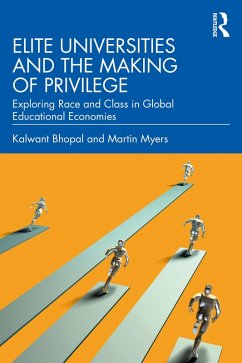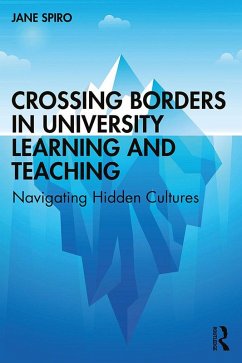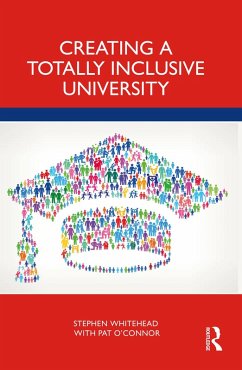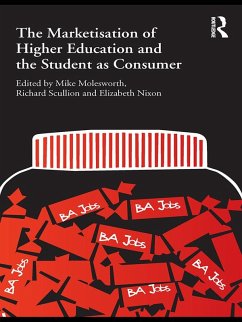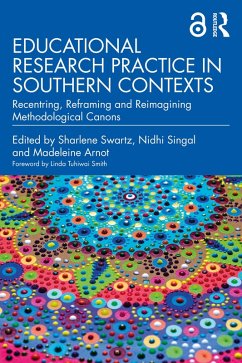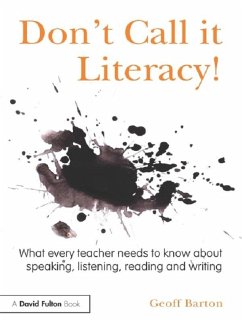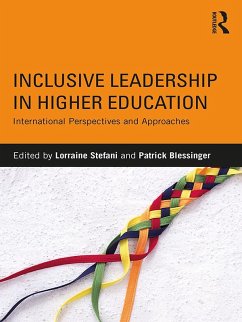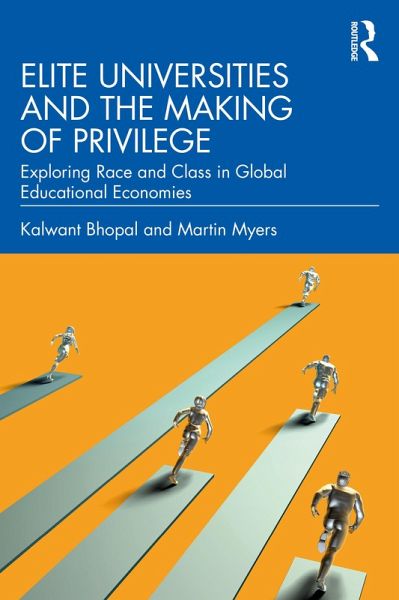
Elite Universities and the Making of Privilege (eBook, PDF)
Exploring Race and Class in Global Educational Economies
Versandkostenfrei!
Sofort per Download lieferbar
35,95 €
inkl. MwSt.
Weitere Ausgaben:

PAYBACK Punkte
18 °P sammeln!
Providing an extraordinary picture of the inner workings of elite universities, Elite Universities and the Making of Privilege draws on current debates on education and inequality and considers the relevance of universities' global brand identities.Using the work of Bourdieu and critical race theory to explore how identity, experience and family background affects how people navigate the social space of the university, this book is underpinned with empirical research that considers different social, economic and educational contexts. Using interview accounts of graduate students, this book hig...
Providing an extraordinary picture of the inner workings of elite universities, Elite Universities and the Making of Privilege draws on current debates on education and inequality and considers the relevance of universities' global brand identities.
Using the work of Bourdieu and critical race theory to explore how identity, experience and family background affects how people navigate the social space of the university, this book is underpinned with empirical research that considers different social, economic and educational contexts. Using interview accounts of graduate students, this book highlights ambiguities in how eliteness works as both a recognisable marker of institutional status and a marker that is rarely quantified or defined.
Combining intellectually rigorous, accessible and controversial chapters, Elite Universities and the Making of Privilege is crucial reading for anyone looking to understand how race and class affect those navigating elite universities.
Using the work of Bourdieu and critical race theory to explore how identity, experience and family background affects how people navigate the social space of the university, this book is underpinned with empirical research that considers different social, economic and educational contexts. Using interview accounts of graduate students, this book highlights ambiguities in how eliteness works as both a recognisable marker of institutional status and a marker that is rarely quantified or defined.
Combining intellectually rigorous, accessible and controversial chapters, Elite Universities and the Making of Privilege is crucial reading for anyone looking to understand how race and class affect those navigating elite universities.
Dieser Download kann aus rechtlichen Gründen nur mit Rechnungsadresse in A, B, BG, CY, CZ, D, DK, EW, E, FIN, F, GR, HR, H, IRL, I, LT, L, LR, M, NL, PL, P, R, S, SLO, SK ausgeliefert werden.




